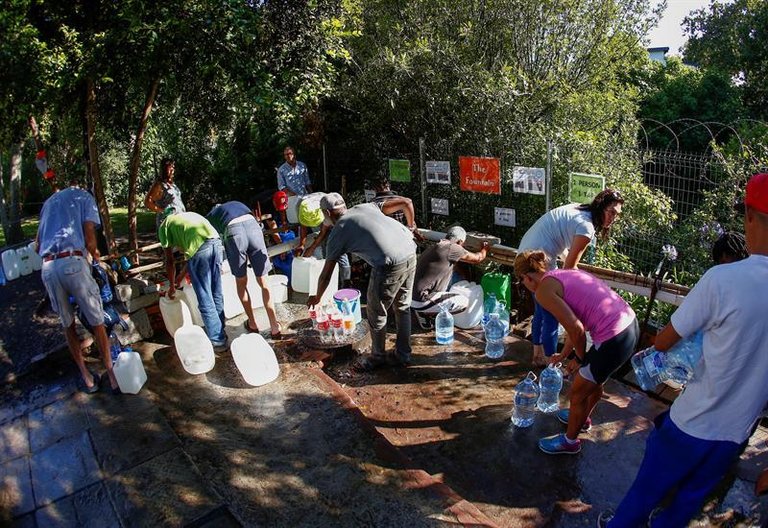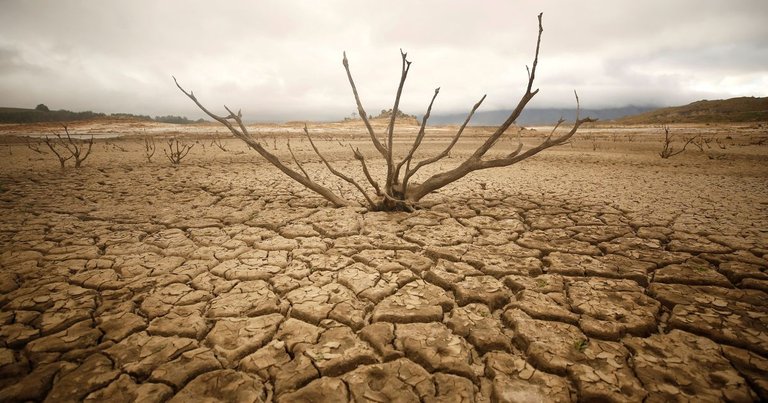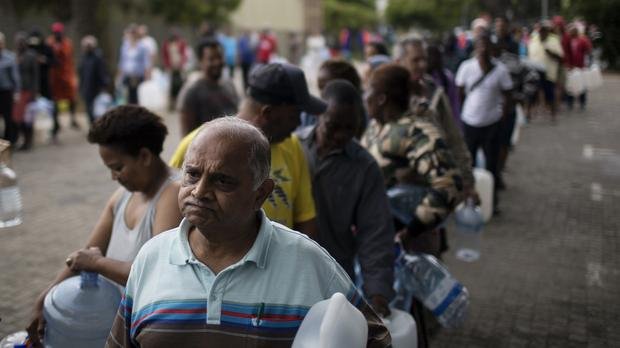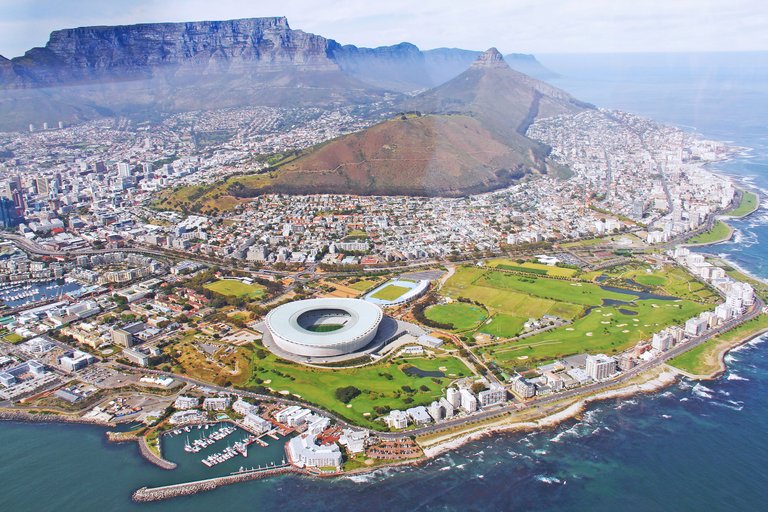It is not the first time that a human population suffers from lack of water due to great droughts, or some natural catastrophe. Generally this scourge affects small populations, poor countries or desert regions, but very rarely large cities, since its infrastructure is designed to withstand relatively long periods of scarcity.
In fact, never a capital of a country of the globalized world has had to suffer an extreme circumstance and run a serious risk of running out of water supply ... until now.
The "Day Zero" ... the day when the water will not reach everyone and there will be a real shortage situation, it is very soon to arrive:
- The day: April 28, 2018
- The place: Cape Town (South Africa)
Although it seems unusual, Cape Town, located in a region blessed by nature, after suffering years of intense drought, is about to run out of water reserves.
The restriction and rationing measures that were taken months ago no longer guarantee that the reserves are not exhausted, and the population begins to prepare fearful for a situation unsuspected a few years ago, and unlikely until a few months ago ... but the time is running out, and the reservoirs that supply Cape Town already have less than 30% capacity, and descending rapidly. At the critical point, city authorities will be forced to cut off the non-essential water supply, which would be limited to hospitals and other fundamental infrastructures.
The more than four hundred thousand inhabitants of the city, plus several hundreds of thousands more throughout the region, would then have to go to collective water supply points to collect a limit of 25 liters per person. An amount of barely enough to cover the minimum needs of drink, food and hygiene.

Source EFE
We are not talking about the deep, poor and forgotten Africa of the assistance of men ... We are talking about the legislative capital of the richest and most powerful country in the continent.
"They have to save water as if their lives depended on it, because it depends on it (...) No one should be showering more than twice a week," said the head of provincial government, Helen Zille, who remains convinced of being able to avoid the emergency.
Right now, some sectors of the population suffering shortages, collect water with all kinds of containers in points enabled for public supply.
This could extend to 100% of the city's population in just a few weeks.
The unscrupulous human attitude has already caused havoc:
Before reaching this point, the municipal authorities put in place measures aimed at saving consumption in the homes of the city.
Since last January 1, the use of water was limited to 87 liters per person per day. It was also prohibited to wash cars, water gardens or fill swimming pools; It was recommended to take showers instead of bathrooms and it was recommended to limit the use of the dishwasher.

Theewaterskloof Dam near Cape Town, South Africa REUTERS/Mike Hutchings.
But although 70% of the water in Cape Town is consumed in homes, a large part of the population does not seem to be aware of the seriousness of the situation and the importance of their daily actions to cooperate. "Despite our appeals for months, 60% of the inhabitants of Cape Town use imperviously more than 87 liters per day," said the mayor of the city.
"We can no longer ask people to stop wasting water, we have to force them."
Therefore, as of February 1, the mandatory restriction is 50 liters per day per person. This limit will be maintained for at least 150 days, until the situation can be reconsidered.
The official recommendations are:
- Shower in less than two minutes.
- Use drinking water only for drinking and cooking.
- Do not water gardens or wash vehicles, and use the cistern only if necessary. Reuse the excess water in the shower or sink for it.
- Use the washing machine and dishwasher only at maximum capacity.

Even so, a large part of the population remains reluctant to save and prefers to be exposed to fines.
In 2014, South Africa had reserves to supply an unlimited supply of four million inhabitants. The intense drought and human negligence achieved the unthinkable.
The "Day Zero", only the public forces will be able to control the chaos in a city of four hundred thousand inhabitants, where the water will be the most precious good.
Most regions of the world have already surpassed what climatologist Peter Gleick calls "the roof of the water."
People live in places where they use all the renewable water, or what is worse, they live on borrowing by pumping excessively non-renewable groundwater.
500 million people in the world face hardships all year round, of which more than a third live in India.
It's just the beginning. The planet has already warmed 1ºC since the pre-industrial era, and could still add one or two degrees. According to the UN climate experts (IPCC), with each additional degree, about 7 percent of the world's population loses at least 20 percent of its renewable water resources.
By 2030, the world will face a water deficit of 40 percent if action is not taken to limit climate change. At the same time, world demand will increase by 55 percent, under pressure from the metropolises of developing countries.
How much do you think your city needs to reach the same situation in Cape Town?

Beautiful place
It is a beautiful place, but it is unfortunate that you are in that serious problem with water.